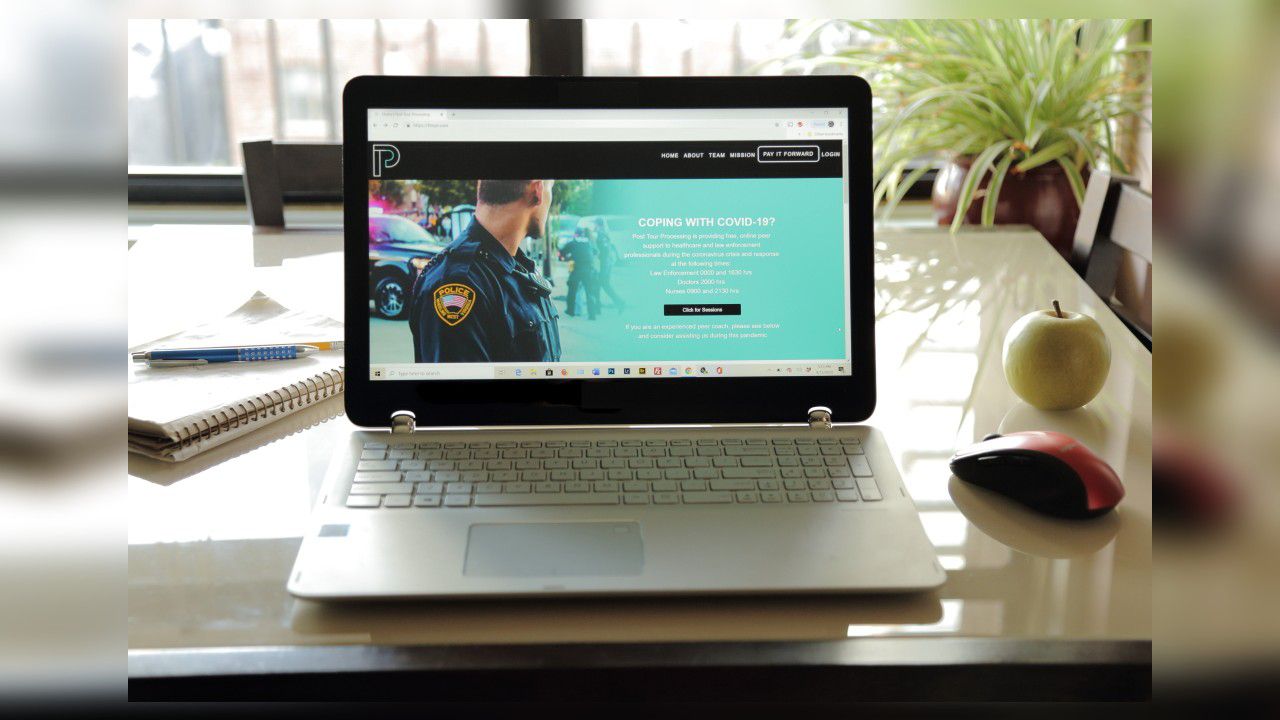Unrelenting exhaustion, anxiety, fear and tension – it is a perfect recipe for Post Traumatic Stress Disorder, and something law enforcement officers feel every day. Retired Police Officer Robin Cannariato spent eight years in the NYPD’s Early Intervention Unit. As a licensed clinical social worker, she recognized that answers might be found in sharing those traumatic experiences with peers, those able to understand the stressors better than anyone. “We needed another tool on the toolbelt for officers to use,” she says, “to support them at work where they see things that other people will never see in their lifetime.”
- LIVE UPDATES: Coronavirus in New York City
- LIVES LOST: Remembering Victims of the Coronavirus
- What to Do If You Test Positive for COVID-19
- CDC Coronavirus Page
- WHO Coronavirus Page
Three years ago, Cannariato joined with retired Deputy Inspector Christopher Hetherington and active duty Sgt. Michael Perrugia to form Talk To Me Post Tour Processing, a virtual peer support group that allowed officers to log on and share their thoughts in complete anonymity. “It was something we could bring to modern times,” she says, “something we did in brick and mortar locations that we can now do virtually. We really believe if you address this, early on in a supportive forum, they can process out the incidents they’ve been exposed to.”
Then came the Coronavirus Pandemic. Cannariato recognized the same stress she saw in law enforcement etched on the faces of frontline healthcare workers dealing with an unending stream of patients, an overwhelming number of deaths including, sometimes, their own colleagues, and a lack of the equipment they needed to keep themselves and their patients safe. So they opened up the program to nurses, doctors and EMTs, anyone putting their own lives at risk to save others.
“On top of the distress and uncertainty related to the Coronavirus crisis that everyone feels,” she says, “they are working in extreme conditions and bear the concern of greater risk of infection to themselves and to their families. Our program offers a colleague in the same profession who can relate and keep private the conversation, which helps to alleviate job-related tension and improve wellbeing.”
Peer facilitators are working pro bono to head up the group sessions, where healthcare workers can log on and share their stories, and their stress. If peer support is not enough, counselors and clinicians are available for those who might require professional help.
Because of the anonymous nature of the TTM PTP, there are no records kept, so Cannariato could not say how many healthcare workers have taken advantage of the program, but, she says, “we’ve had sessions daily and the groups have been attended and positive and supportive.
If you are a law enforcement officer or frontline healthcare worker and you think you might benefit from the program, or to make a donation, log on to ttmpt.com. “There are amazing people out there working through this pandemic,” Cannariato says. “We should be grateful we have them, and we can’t take anything for granted. It’s clear that our front lines are working in a way that is unprecedented.”
